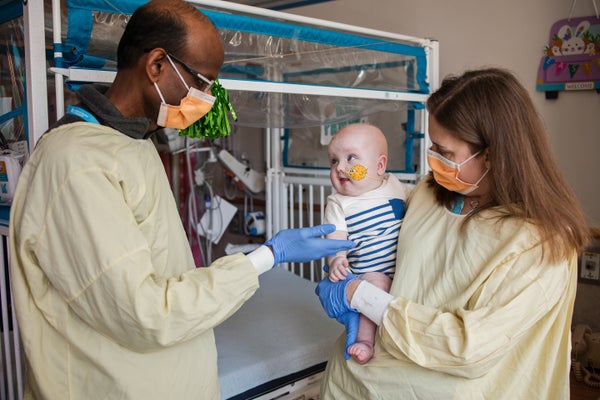In World First, Baby Receives Personalized CRISPR Gene-Editing Treatment
A CRISPR treatment seems to have been effective for a baby’s devastating disease, but it is not clear whether such bespoke therapies can be widely applied

KJ Muldoon, a baby born with a genetic disease that affected his ability to metabolize proteins, has become the first person to receive a bespoke CRISPR treatment.
Children’s Hospital of Philadelphia
A baby boy with a devastating genetic disease is thriving after becoming the first known person to receive a bespoke, CRISPR therapy-for-one, designed to correct his specific disease-causing mutation.
Little KJ Muldoon, now nearly ten months old, is doing well after receiving three doses of a gene-editing treatment to mend a mutation that impaired his body’s ability to process protein, his parents told reporters this week. But it is too soon to use the word “cure”, says Rebecca Ahrens-Nicklas, a pediatrician at Children’s Hospital of Philadelphia in Pennsylvania, and one of Muldoon’s physicians. “This is still really early days,” she says. “We know we have more to learn from him.”
To reach this point, an international team of clinicians and researchers in industry and academia, with support from US government funders and regulatory agencies, raced to develop Muldoon’s therapy in a mere six months. Yet, the drug that it developed, described in the New England Journal of Medicine on May 15, is specific to Muldoon’s genetic sequence and will probably never be used for another person, says Ahrens-Nicklas.
On supporting science journalism
If you’re enjoying this article, consider supporting our award-winning journalism by subscribing. By purchasing a subscription you are helping to ensure the future of impactful stories about the discoveries and ideas shaping our world today.
It’s an ambitious approach that researchers hope will inspire others to harness CRISPR to treat ultra-rare genetic…
Read the full article here
